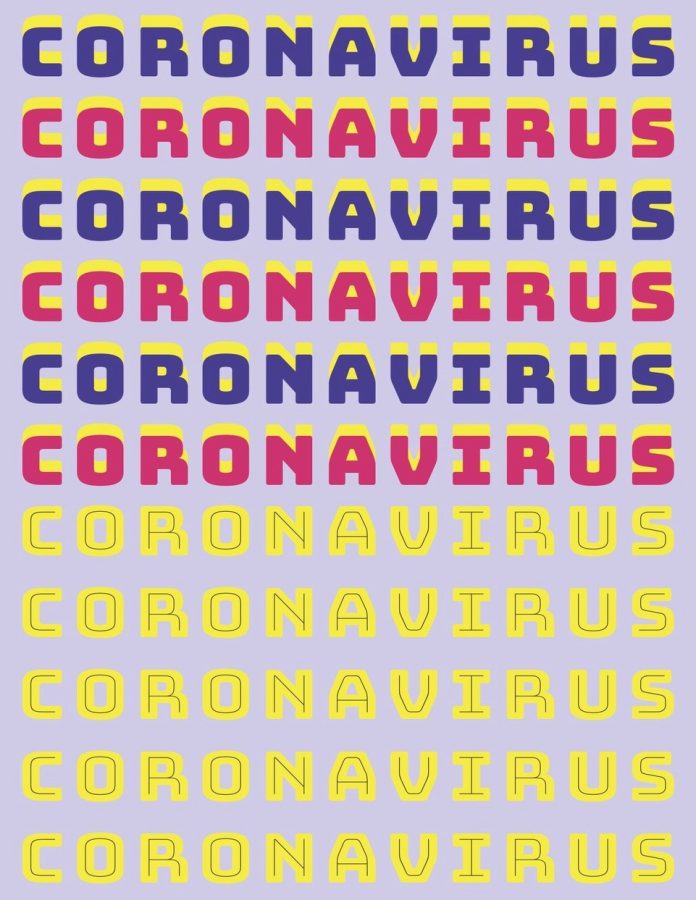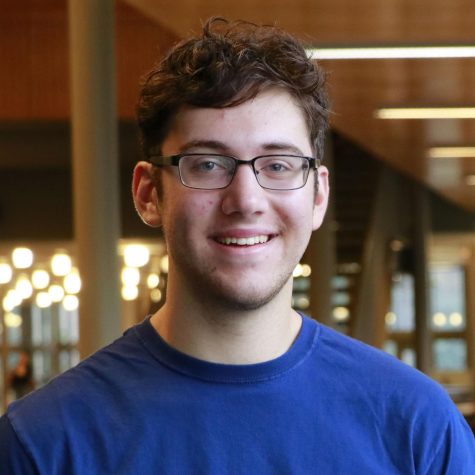Another Installment in the History of Pandemics and Xenophobia
April 22, 2020
Schools are closed, office buildings dark, usually busy streets void of people and bustling highways reduced to foreboding stripes of silent concrete. The emergence of the coronavirus as a global phenomenon has altered daily life in unthinkable ways, including fueling the resurgence of a heinous social injustice that the United States and the rest of the world have struggled with for decades. Sinophobia, xenophobia, and the racist targeting of peoples of Asian descent has gone hand in hand with pandemics for hundreds of years, and despite the presence of modern medicine and the widespread communication of the Internet, this outbreak of COVID-19 has proven to be no different.
Many countries, the U.S. in particular, already have an unfortunate track record with topics like race and immigration, but the malicious opinions festering around these topics have undoubtedly amplified the xenophobia–the fear or hatred of foreigners or foreign things–and Asian-targeted racism in the U.S. during this crisis. In an article by Vox, University of South Carolina professor Natalia Molina calls out the American culture of using race to identify problems in society–from the political domain to our inherent culture–and said, “… There are plenty of things we know about how to deal with this virus… But we tend to focus less on those practices than we do on pointing out people that we think are going to be more likely to be disease carriers. At my own campus at USC, students that are Asian American but aren’t Chinese and don’t have any connection at all to the coronavirus are more likely to be seen as disease carriers. People are more ready to point out and stay away from people that look a certain way than they are to engage in the practices that they know will keep them healthy…”
The hostility is hitting Chinese and Chinese-American individuals especially hard, but as Molina mentioned, it is not just affecting people of Chinese descent. In the true spirit of bigotry, other Asian ethnicities are being targeted as well. Health and Sports Medicine teacher Joseph Nguyen admitted on a class livestream that, despite being Vietnamese-American, “During the start of this when I still had to go to the grocery store, when I still had to go around the community a little bit, people avoided me, people gave me looks. Weirdly enough, they didn’t give me the six feet. They would just walk by, close to me, and still mean-mug me.” His account is just one of many similar cases from both Asian immigrants and Asian Americans across the country with incidents ranging from passive-aggressive looks to physical assault, verbal harassment, and vandalization of property.
Since the rise of COVID-19 in the late months of 2019, people across the globe have reported hundreds of cases of discrimination and aggression towards Chinese and other Asians, including harassment on social media, petitions, and protests worldwide. According to National Public Radio, the coronavirus has plummeted the sales of East Asian and Southeast Asian restaurants, reduced the foot-traffic in international districts across the country before business restrictions were even issued, and caused a rise in hostile attitudes, anti-immigrant comments, and racial slurs towards people who appear of Chinese or generally Asian descent.
Both junior Weston Crewe and senior Aditi Prabhala said they have yet to hear any xenophobia or racism directed at people of Asian descent and agree that IHS, as well as the Issaquah community, is one that is generally tolerant and respectful, but there are plenty of others students who, before schools closed state-wide, have undoubtedly heard borderline racist comments and insinuations. Sophomore Cora Beckman said before schools closed that she heard students behind her in one of her classes make racist “jokes” and comments about people of Chinese descent related to COVID-19.
Now that copious countries have put government restrictions on outside activity and human contact, the hate has become particularly venomous on social media platforms. There are plenty of jokes and memes about the coronavirus that are rightfully humorous and a simple side effect of coping with the total shut-down of our daily lives, but there are also “jokes” that are harmful towards the Chinese community as well as the Asian community overall. Microaggressions towards Chinese food culture, the amplifying of damaging Chinese stereotypes, slights about avoiding people of Asian descendent, hashtags referring to COVID-19 as the “China virus” or “Wuhan virus,” and speculations about who is at “fault” for the virus’s origin have flooded social media.
IHS principal Andrea McCormick has revealed that the Issaquah School District released a formal message early in the face of this pandemic that any hate speech or acts of discrimination against students of Asian descent will not be tolerated and that they are encouraging students to contact a school official if they experience discrimination from fellow students. McCormick also said that she encouraged students to shut-down any hostility they come across by doing, “… exactly what we teach them to do during handbook talks, SEL lessons, etc. Shut it down, don’t be a silent bystander, and if you hear hate speech, report [it] to admin.”
Although many people might view themselves as comedic and lighthearted, it is vital to be aware of the damage any race and culture-centered humor may do. By all means, add some fun to the world during these horrible circumstances, but do not fan the flame of racial division and add to a culture of suspicion that could exist long after this pandemic has passed.





Abi • Apr 23, 2020 at 5:14 pm
This is a fantastically written article that covers a very important contemporary discussion while connecting it to the past. Great work!